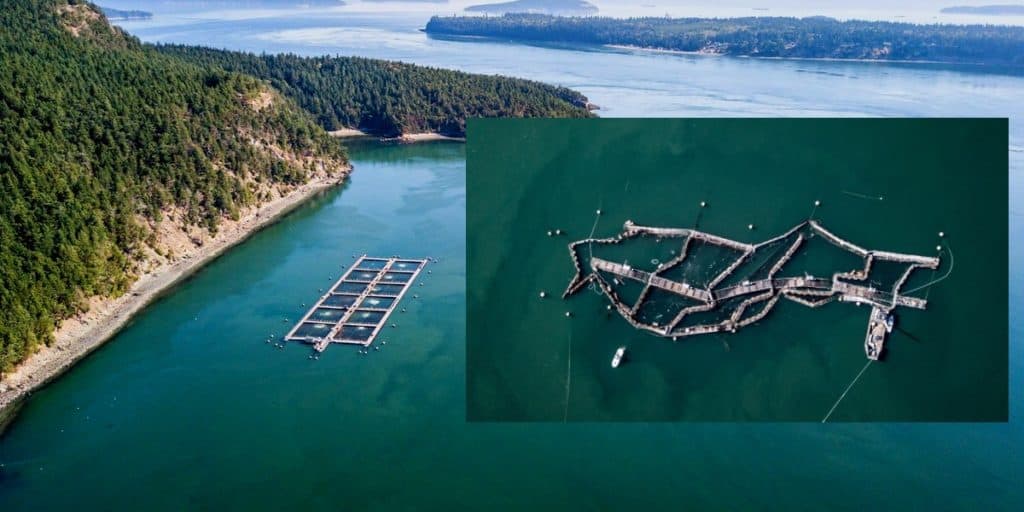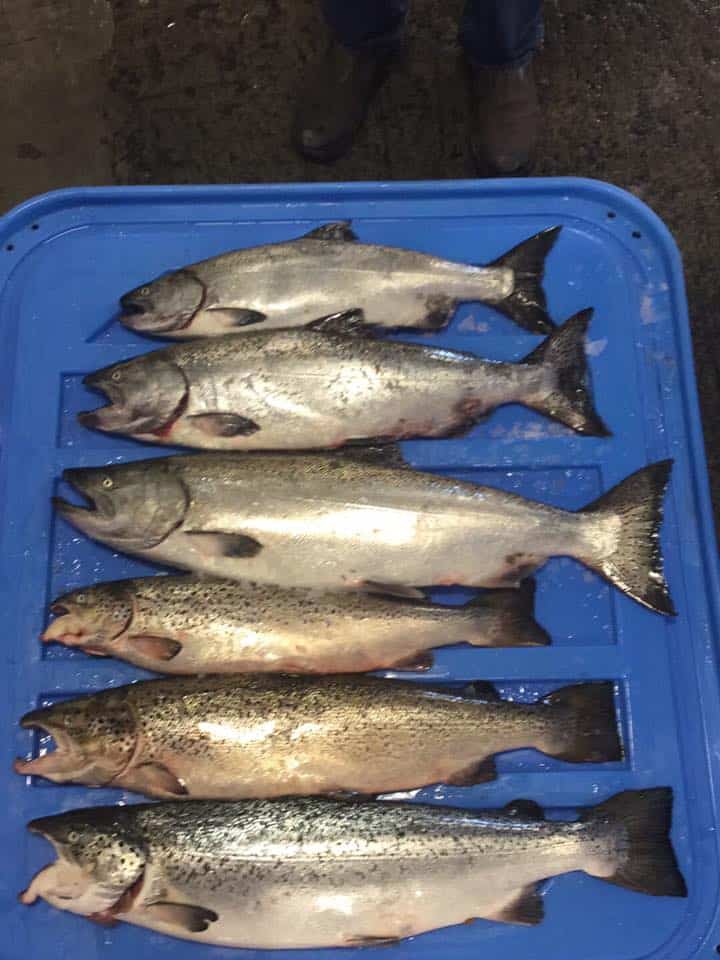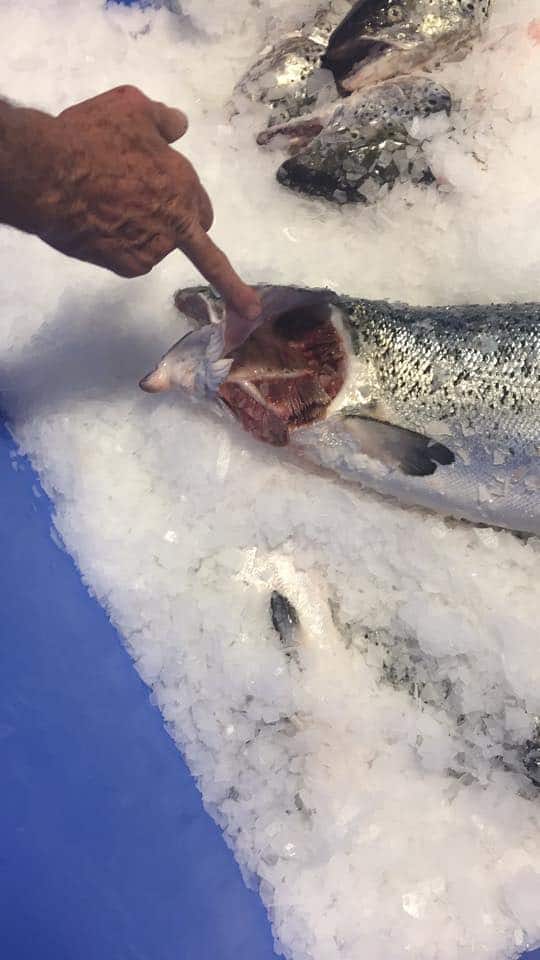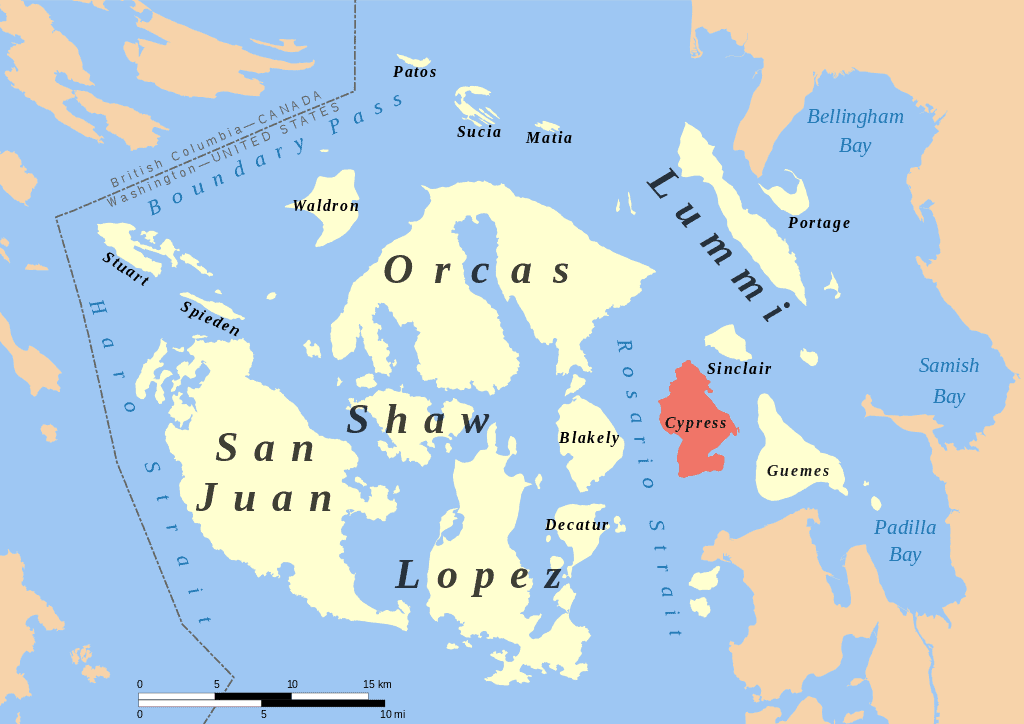Cypress Island Farmed Fish Disaster
Farmed Fish in Washington State
Fish farms are a global controversy, yet here in Washington State, they are allowed. On Saturday, August 19th, a group of salmon pens run by Cooke Aquaculture located off of Cypress Island, near Anacortes, WA “imploded” and farmed fish are now freely swimming in the Salish Sea ecosystem. See video from Kiro 7 here.
The contingency plan set in place by the State of Washington is, in essence, to have commercial fishing operations, augmented by sport fishers, clean up Cooke’s mess. It is now the job of the public to clean up a corporate disaster.
The Seattle Times coverage of this event leads with the headline “Please go fishing, Washington State says after farmed Atlantic salmon escape broken net” and the URL for this article includes “oops-after-accidental-release-of-atlantic-salmon-fisherman-being-told-catch-as-many-as-you-want.”

Before and after, Cooke Aquaculture pens off of Cypress Island c/o Beau Garreau
“Oops” is an understatement. This was not a “broken net”—the entire pen system collapsed, releasing as many as 305,000 invasive fish into a very delicate ecosystem which has seen declining fish runs over the last several decades.
So, what’s the deal with farmed fish, and why is this important, you might ask?
- Farmed fish can escape and contaminate other sea life, spreading diseases and parasites to wild fish and marine life.
- Farmed fish can breed with wild fish, which contaminates non-farmed sources of seafood and leads to decreased genetic pools.
- Farmed fish can out-compete wild fish in some cases, leading to a population decline of the healthy, natural fish.

The top three fish are local wild King Salmon, the bottom are Cooke Aquaculture farmed Atlantic Salmon — note their mouth deformities and under developed tails.
How did Cooke Industries respond? Nell Halse, vice president of communications for Cooke told the Seattle Times “It’s primarily a business loss. The salmon will be food for the seals and the fishermen can enjoy them,” while dismissing any environmental concerns. The Washington Department of Fish and Wildlife classifies Atlantic salmon as an invasive species.

The normally red or pink gills of salmon are grey and dead looking on the Cooke Aquaculture Atlantic Salmon, caught on 8/21/2017
How to Push Back Against Farmed Fish
If this doesn’t sit right with you, there are a number of things you can do:
Contact your elected officials
Find your district and contact your State Legislators
Contact the Washington Department of Fish and Wildlife
Contact the perpetrators and let your feelings be known
Cooke Aquaculture contact form
Know where your food comes from
When you go to restaurants and order fish, ask them if their fish is farmed. If they don’t know, don’t eat it. When you’re at the grocery store, make sure you ask where their fish comes from (especially the further you are from the West Coast), and if they don’t know, don’t buy it.
Support direct to consumer wild seafood companies – change the way we buy seafood
We started Lummi Island Wild with the goal of selling direct to consumers over the internet. When you buy from us, you know you are always getting wild fish, caught and handled in the most ethical, humane manner possible. By supporting us, and helping us prove our business model, we can remove obscurities from the seafood buying process. This will inspire other commercial fishermen to do the same. Know what you’re feeding your family!
Stay Tuned
Keep an eye on our Facebook page for more updates, and make sure you comment wherever you see this story being discussed. Be aware of the spin being put out by the responsible parties—this is a predictable, man-made ecological disaster that should never have been allowed to happen.
If you want to know more, contact our team directly:
– Lummi Island Wild Office –
3131 Mercer Ave #105
Bellingham, WA 98225
(360) 366-8786
– Email –
General Inquiries
office@lummiislandwild.com


